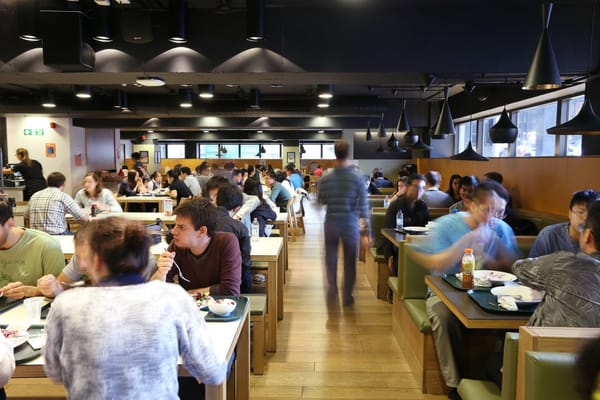Super-talents need super-food – a PG perspective on h-bar cuts
Life is our best teacher about how the biggest crises can be turned into the most fundamental opportunities for change. If there is one good thing about the h-bar food-cut tragedy, then it is the chance to take a step back and rethink how we provide and procure food at Imperial in general. The recent decision to cut the SCR breakfast and the evening supper service in h-bar are only examples of the many ways in which students, and staff, are increasingly challenged if they want to follow a healthy life-style.
Scientists provide us with endless evidence about which diets are conducive to short-term and long-term health. We know that without a drastic reduction of animal-proteins, saturated fats, salt and sugar, we increase the risks for coronary disease and cancer, not to mention the impact on the planet’s ecosystem. The low quality of food provided at Imperial makes any person sluggish, bloated and demotivated to switch on the brain-cells we rely on to solve cutting-edge scientific problems. And let’s not even go into detail about the increasing part of the population sensitive to highly-processed and industrialised food. For example, 10 to 15% of the population suffer from Irritable Bowel Syndrome.
Yes, we need to fight for the h-bar to continue the evening supper service. But let’s also lift our gaze and look beyond h-bar and into the future – should we really make this a battle about the access to a few more fried mozzarella sticks and chicken wings on the South Kensington campus? Or should we engage all College stakeholders, bring them together around one table and restructure the dietary culture of our institution across all our campuses? If we are seriously determined to improve the wellbeing of our people, we need to start at one of our top priority human needs which is the convenience of access to healthy food. As a worldwide leading university full of top talents, Imperial College has the responsibility to provide its people with nourishing food allowing us to thrive as a community. Moreover, we need to return to understanding food as an opportunity to socialise, to build a community and enjoy just being human.






